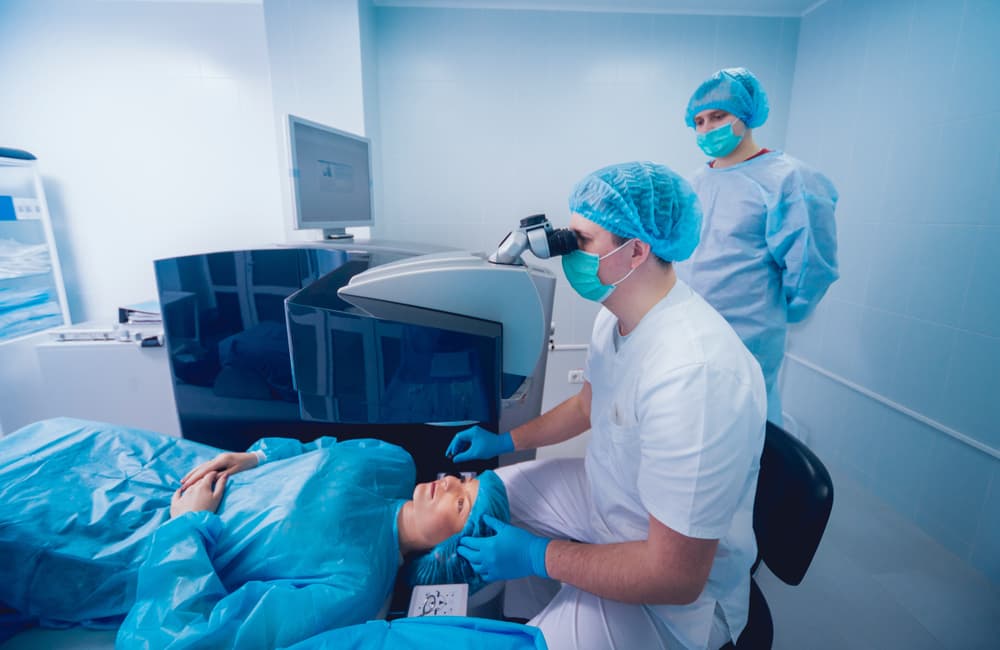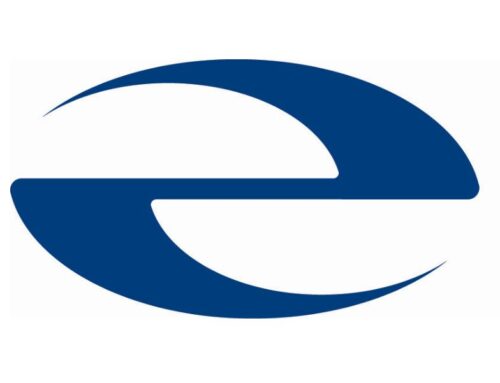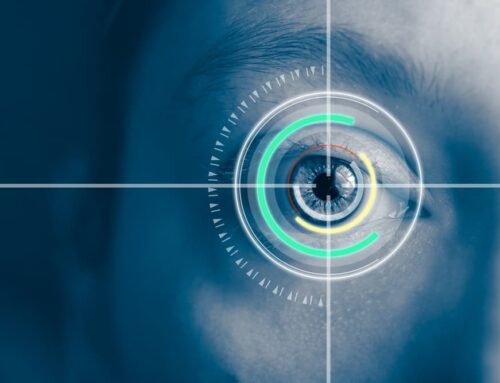LASIK eye surgery is a popular procedure that has helped millions of people around the world improve their vision and reduce or eliminate their dependence on glasses and contacts. If you are considering LASIK, it’s important to understand what the procedure involves, how it works, and what to expect before, during, and after surgery.
Let’s dive into everything you need to know about LASIK to start your journey to a better vision!
- Eye Surgery 101: What Is Lasik Eye Surgery?
- How Much Does LASIK Eye Surgery Can Cost?
- How Long Does a LASIK Eye Surgery Last on Average?
- Can My Insurance Cover My LASIK Eye Surgery?
- Does LASIK Eye Surgery Hurt?
- Is It Safe? All About the LASIK Eye Surgery Procedure
- How Old Is Too Old for LASIK?
- LASIK Eye Surgery Origin
- Should You Pay for LASIK?
- LASIK Surgery: Is It Worth It Without Insurance?
- LASIK VS Laser Eye Surgery: What Are the Differences?
- Implantable Collamer Lens vs LASIK: Which One Is for You?
- Start Your Journey to Better Vision With Eye Care Professionals
Eye Surgery 101: What is LASIK Eye Surgery?
The term “LASIK” stands for “laser-assisted in situ keratomileusis.” “Keratomileusis” refers to reshaping the cornea in your eye, while “in situ” signifies being in the correct position or place.
Nowadays, LASIK is the most popular method of vision correction. You can treat astigmatism, farsightedness, and nearsightedness with this surgery. The main purpose of LASIK is to improve your eyesight by correcting a refractive defect, reshaping the cornea, and allowing light to enter the cornea to reduce or eliminate the use of eyeglasses and contact lenses.
How Much Does LASIK Eye Surgery Can Cost?

LASIK eye surgery costs per eye can vary from $1,000 to over $3,000. This cost typically includes the LASIK procedure itself, as well as pre-and post-operative care. Additionally, it may cover any necessary follow-up procedures to fine-tune the initial results of the LASIK surgery.
Rest assured that the laser vision center you choose will ensure that all the listed services are included in your vision correction package, and keep in mind that there shouldn’t be any additional cost.
Be Mindful of Discounted Prices
Despite how amazing it would be to get LASIK at a cheaper price, be cautious of extremely low prices or deals that are too good to be true. This promotion may come with extra hidden fees, less skilled surgeons, and an unsuccessful LASIK procedure in the long run.
How Long Does a LASIK Eye Surgery Last on Average?
LASIK eye surgery is the most popular and successful procedure for vision correction. The procedure is quick, gentle, and very effective, taking just a few minutes to be completed, and you will experience changes in a short period of time. But how long does it take?
The actual LASIK surgery typically takes about 10 – 15 minutes per eye. However, the entire visit may last up to 2 hours with pre-and post-operative procedures and indications. Before the surgery, you must complete the preoperative consultations and exams with your ophthalmologist. After the surgery, the recovery time will vary depending on each person.
Can My Insurance Cover My LASIK Eye Surgery?

LASIK is a widely accepted and popular procedure for improving vision, but it can appear expensive if you don’t see the big picture. Since it is a surgery used to correct refractive errors, you might wonder if there is such a thing as a LASIK eye surgery insurance coverage.
The quick answer is no, LASIK is not eligible for reimbursement under Medicare or any private health insurance, as it counts as an elective procedure. Some vision insurance policies can help with the expenses of laser eye surgery, but coverage may be limited to certain situations. It’s important to note that most insurance companies do not provide coverage for LASIK, meaning you’ll have to pay for it yourself.
How to Pay For LASIK Without Insurance?
We know this laser eye surgery can be costly, but if you think about it, it will save you a lot more in the long run since you will no longer need to buy prescription glasses or contact lenses. Don’t worry, there are various alternatives that you can use to manage the cost of LASIK, such as:
1. Credit Cards
For those who prefer credit cards with rewards or miles, a no or low-interest card is an excellent way to cover surgery expenses while enjoying additional benefits like travel points.
2. Flexible Spending Arrangements (FSA) or Health Savings Accounts (HSA)
Employers can allow employees to set aside tax-deferred money for procedures like LASIK through an FSA or HSA. Individuals can contribute up to $3,650 in a health savings account, and families can collectively contribute up to $7,300. The IRS limits pre-tax contributions for FSAs to a total of $2,850.
3. Personal Savings
Using cash you already have is a straightforward option to pay for LASIK eye surgery. By doing so, you avoid debt. If savings are insufficient, partial payment with cash could be an option.
4. Care Credit
CareCredit is a special financing option that covers out-of-pocket expenses not covered by medical insurance. It offers benefits that may not be available with other cards.
Does LASIK Eye Surgery Hurt?

If you’ve been contemplating LASIK eye surgery as a solution to correct your vision, you might be curious about the pain factor. Rest assured, LASIK is a proven and safe procedure. However, the perception of pain varies among individuals. While some find the procedure pain-free, others may only experience mild discomfort. Each patient’s experience is unique.
What Can Cause Pain During Surgery?
During the surgery, the doctor will numb your eyes with numbing eye drops so you do not feel any pain. However, you might experience some discomfort during the procedure. Since LASIK is a surgery involving a laser to reshape the cornea, some pain can be experienced, but it is very rare. The doctor uses a suction ring during the procedure, which can cause pressure and soreness.
Another possible discomfort is using a microkeratome or femtosecond laser to create the flap in the cornea. You might experience mild pressure or a pulling sensation.
Is It Safe? All About the LASIK Eye Surgery Procedure

When it comes to our valuable eyesight, it’s normal to have questions and concerns about procedures like LASIK eye surgery. LASIK is a widely embraced method for vision correction, allowing you to improve your eyesight without relying on glasses or contacts. But you might be wondering if it is safe.
As for the safety of LASIK eye surgery, the short answer is yes! It has been a safe and successful procedure for nearly 25 years, with minimal complications.
Does LASIK Have Side Effects?
If you’re still curious about the safety of LASIK surgery for your eyes, it’s important to note that, like any surgical procedure, LASIK does come with potential side effects. However, these are usually mild and temporary. Common side effects include:
- Temporary dry eyes
- Glare or halos around lights at night
- Vision fluctuation
- While very rare, you can experience infection or inflammation
Overall, the risks associated with this surgery are low compared to the potential benefits that it provides.
The History of LASIK Eye Surgery

LASIK (Laser-Assisted in Situ Keratomileusis) emerged in the late 1980s and early 1990s as a groundbreaking procedure in ophthalmology. Driven by the relentless dedication and expertise of Dr. Ioannis Pallikaris, a Greek ophthalmologist, and his colleagues, this innovative technique combined radial keratotomy principles with excimer laser precision. The result was a revolutionary approach to vision correction, offering improved safety and effectiveness.
Who Invented LASIK Eye Surgery?
Dr. Loannis Pallikaris, Dr. Lucio Buratto from Italy, and Dr. Jose Barraquer played pivotal roles in developing and refining LASIK, a revolutionary procedure in ophthalmic history. In 1989, Dr. Pallikaris achieved a milestone by successfully performing the first LASIK procedure on a human patient, forever etching his name in the annals of ophthalmology.
Their collective efforts and unwavering determination have had a profound impact on the lives of countless individuals seeking liberation from visual impairments.
How Old Is Too Old for LASIK?
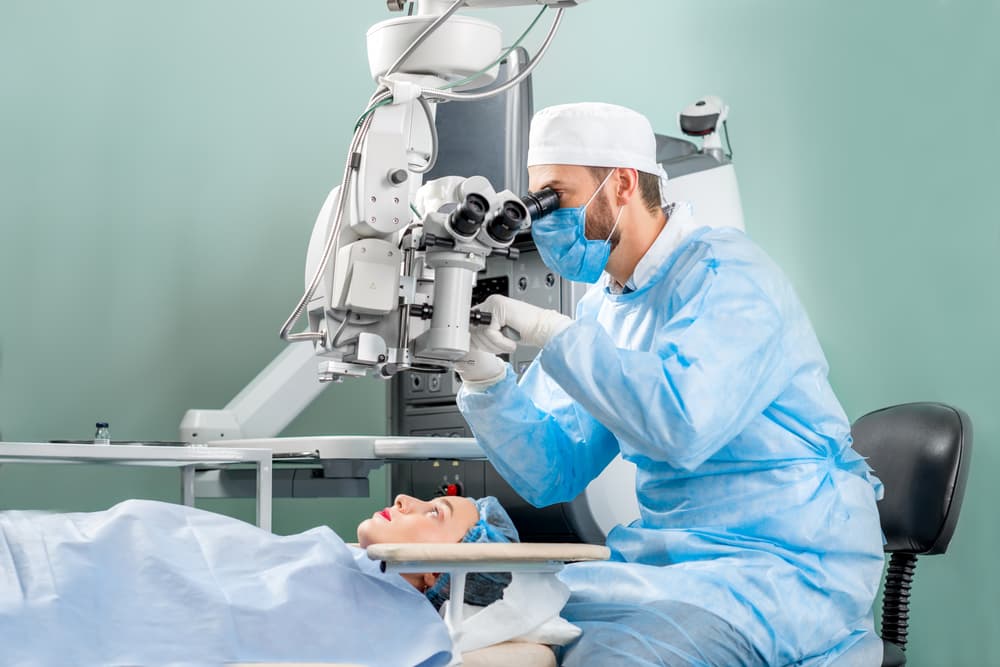
The minimum age requirement for LASIK eye surgery is 18 years old since the eyes are still developing and changing before this age. It is crucial to ensure the stability of the prescription before undergoing any permanent corrective surgery.
On the other hand, there is no upper age limit for LASIK eye surgery. As long as the patient is in good health and has a stable prescription, they can be eligible for LASIK. However, individuals over 45 years old may benefit more from a vision correction procedure like Refractive Lens Exchange, as it can address age-related conditions such as presbyopia.
LASIK Candidates
To qualify as a candidate for LASIK eye surgery, certain criteria must be met:
- Your prescription should have remained stable for at least one year before the surgery.
- Your eyes must be healthy, with no history of eye diseases like glaucoma or cataracts.
- It is important to have realistic expectations about the anticipated outcome of the surgery.
- The patient should be prepared to diligently follow the pre-and post-operative instructions provided by the ophthalmologist.
LASIK Surgery: Is It Worth It Without Insurance?

Imagine waking up and seeing the world with crystal-clear vision without needing glasses or contact lenses. This is the allure of LASIK eye surgery, a widely sought-after procedure that can transform your life. This surgery allows you to achieve perfect 20/20 vision and bid farewell to your reliance on glasses. But that is not covered by insurance might not be very appealing, so is it worth it?
How Much Does LASIK Eye Surgery Cost Without Insurance?
The average cost of LASIK eye surgery ranges from $1,000 to $3,000 per eye. Several factors can influence the cost of the procedure, which you should consider.
Factors Affecting the Cost
The cost of LASIK eye surgery without insurance can vary based on different factors, including:
- Vision prescription: The severity of your prescription or any specialized needs, like astigmatism correction, can impact the cost of LASIK.
- Type of LASIK procedure: Bladeless LASIK, which exclusively uses lasers, falls within the midrange cost. Custom (wavefront) procedures generally incur higher charges, while LASIK with blades, lasers, or PRK may be comparatively more affordable.
- Location: LASIK procedures typically have a higher price tag in larger cities and urban areas.
What’s Typically Included in the Cost of LASIK?
In most cases, the cost of LASIK surgery is a fixed rate. Following a consultation, you can determine your eligibility and understand the associated expenses. The cost usually covers various components, including:
- Preoperative examination
- Surgical fee
- Prescription eye drops
- Follow-up appointment
LASIK VS Laser Eye Surgery: What Are the Differences?
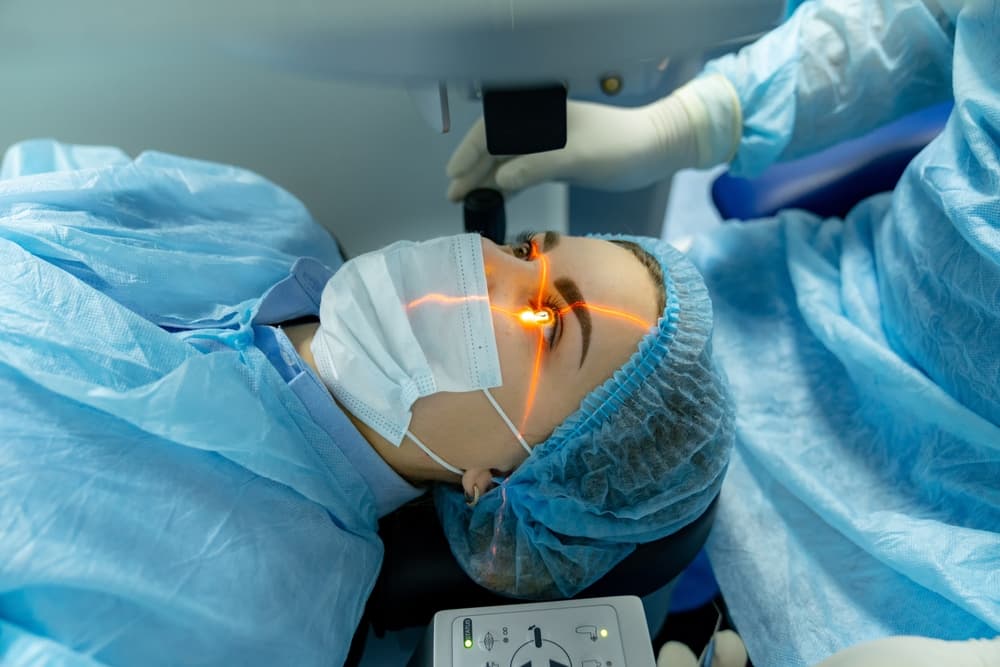
LASIK, also known as Laser Assisted In-Situ Keratomileusis, has become the most popular procedure for correcting vision issues like nearsightedness, farsightedness, and astigmatism. It typically takes around 10 minutes per eye and offers the quickest recovery and least discomfort compared to other laser eye surgery methods.
So, what differentiates LASIK from laser eye surgery? In reality, LASIK is a type of laser eye surgery.
Alternatives of LASIK
There are alternative options available for vision correction for individuals who are not suitable candidates for LASIK or prefer a different approach. Here are a few alternatives to consider:
- Refractive Lens Exchange (RLE): RLE is a procedure similar to cataract surgery where an artificial lens replaces the eye’s natural lens. This can correct various refractive errors, including nearsightedness, farsightedness, and age-related loss of near vision (presbyopia).
- PRK (Photorefractive Keratectomy): PRK is a laser eye surgery that reshapes the cornea’s surface without creating a corneal flap, as done in LASIK. Instead, the cornea’s outer layer is removed to access the underlying tissue.
- Implantable Contact Lens (ICL): The ICL is placed inside the eye and eliminates the need for external contact lenses. It corrects vision problems such as nearsightedness, farsightedness, and astigmatism. Once implanted, it is invisible and cannot be felt in the eye.
Implantable Collamer Lens vs LASIK: Which One Is for You?
When choosing between ICL and LASIK, the decision depends on individual circumstances. Each procedure offers its own benefits, making one more appropriate for specific patients depending on their requirements. There are various differences between the two, such as the laser utilized and the quantity of tissue removed.
Key Differences To Take into Consideration
| ICL | LASIK | |
| Condition Treated | Nearsightedness and astigmatism | Nearsightedness, farsightedness, astigmatism |
| Procedure Duration | 20 minutes per eye | 10 – 15 minutes per eye |
| Recovery Time | 1 day for clear vision; 1 month for full healing | 1 day for clear vision; 3 months for full healing |
| Possible Side Effects | Sensitivity to light, decreased night vision | Dry eyes, blurry vision |
| Risks | Overcorrection or under-correction of the visual defect, cataract formation | Overcorrection or under-correction of the visual defect, scarring from the flap |
Start Your Journey to Better Vision With Eye Care Professionals
LASIK eye surgery presents a transformative opportunity for individuals seeking to improve their vision. The procedure is quick, relatively painless, and offers rapid recovery. As with any surgical procedure, it is crucial to consult with your eye care professional to understand all the potential benefits, risks, and costs. With the right guidance, you can decide on the best path to crystal clear vision.
At Eye Care Professionals, we understand the importance of clear vision and strive to provide top-quality eye care services. Our team of experienced ophthalmologists is dedicated to helping you achieve your vision goals through LASIK. We will guide you every step of the way, from initial consultation to post-operative care and follow-up appointments.
Trust us to be your partner in achieving optimal eye health and visual clarity. So why wait? Book your appointment now and start your journey to a better vision!




